Why are the Japanese terrified of their prisons?
Categories: Asia | Society | World
By Pictolic https://pictolic.com/article/why-are-the-japanese-terrified-of-their-prisons.html"Don't swear off the bag and the prison" — so says an old Russian proverb that accurately reflects the attitude of our people to problems. That's probably why many of us perceive the possibility of getting behind bars philosophically. The same cannot be said about the Japanese, for whom prison is scarier than death. Why is that? Are there really such terrible prisons in one of the most developed countries in the world?
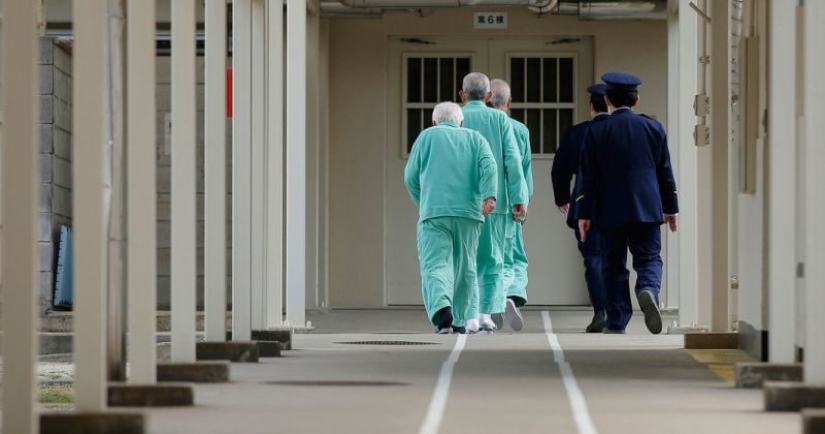
It must be said at once that in Japan prisons are divided into several types, ranging from correctional houses for minor offenders, ending with "institutions" where murderers, rapists and drug dealers sit. In prisons for "small fry" conditions, though not resort, but very decent — there are libraries, sports grounds and you can even learn a new profession or graduate from college in absentia. We will tell you about the prisons where those convicted of particularly dangerous crimes and those sentenced to death are sitting.
In Japanese prisons — cleanliness, beauty and order. There are no damp underground punishment cells with rusty shackles, nor crowded communal cells where they sleep in turns. Despite this, any Japanese will say that prison is not just an unpleasant, but a creepy place where a person immediately ceases to be himself.
At first glance, a Japanese prison resembles a hospital
The authorities of the country do not make secrets from their penitentiary system and information about the procedures in places of detention is always publicly available. It's quite another thing that the Japanese do not want to talk about this topic, especially those who have served a prison sentence.
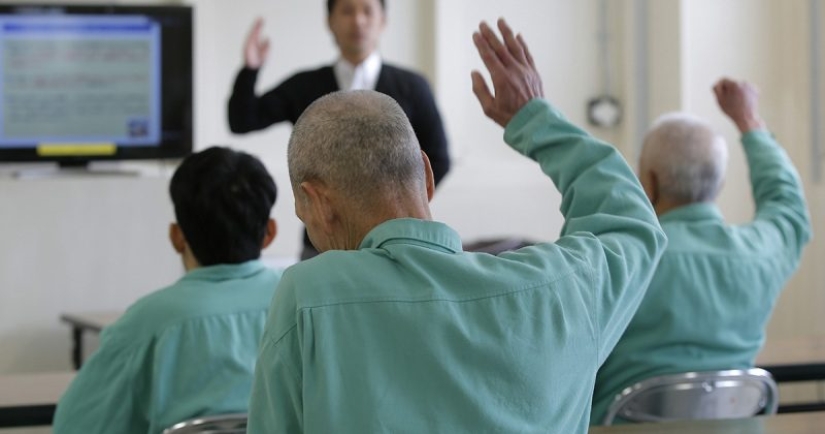
Prison past in It is not accepted to brag in Japan — this is a shameful and difficult period of life
A person who ends up in a Japanese prison immediately loses almost all of his rights and only his physiological needs remain with him: to breathe, to eat, to use the toilet. Everything else, in most cases, is done either on command or secretly. You can't look up at the guard, you can't turn your head, you can't talk, and especially to forgive something. For any violations of the order, the prisoner receives full-fledged blows with a baton from the guard.
Corridor with death row cells
No one, except suicide bombers, sits just like that — everyone is obliged to do the job. It can be assumed that some kind of production activity will give an outlet and allow you to escape from the nightmare, but no - usually work is a monotonous, driving a person to frenzy action. In production, everyone performs one simple operation and so many hours, every day, from year to year.
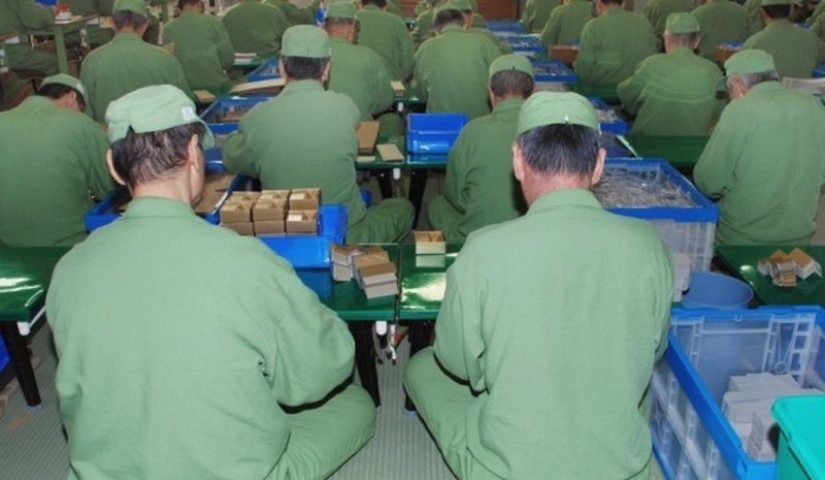
Work shop in prison
It is known that the Japanese like to sit in the traditional seiza pose — with their legs bent under them. But in prison, even this was made a sophisticated torture. Prisoners are forced to sit in seidza for many hours in a row, which causes muscles and joints to atrophy and traces similar to bedsores form on the buttocks. It is impossible to get up — the violator gets a baton and goes to reflect on his behavior in a special tiny room, where he again has to sit in the same position.
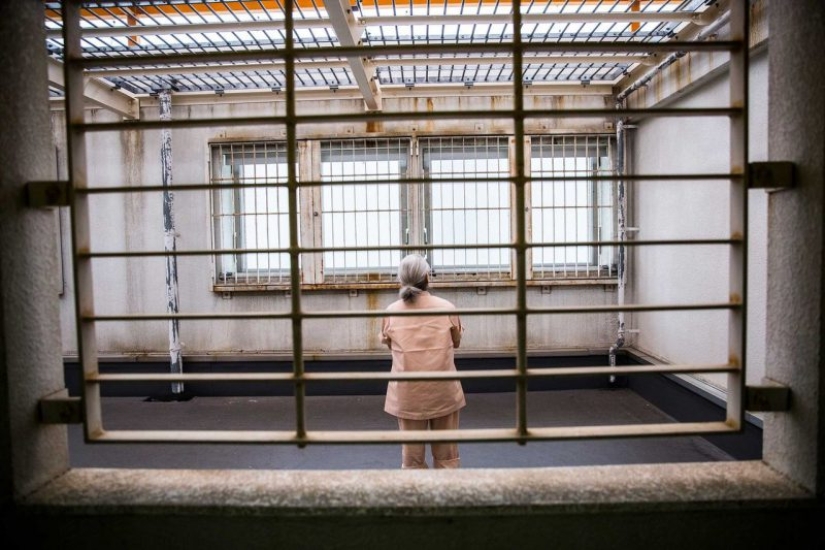
In Japan, there is no central heating and in the cold season, residents of the country use electric heaters. In this case, they save money on prison residents — there are no heating devices either in the cells or in the workrooms. Given that the summer and winter clothes of a prisoner are no different, they often get sick in prisons, and quite seriously.Medicine in places of detention is purely symbolic — as long as the prisoner moves his legs, he is considered healthy. There is no one to treat anyway — doctors very rarely choose to work in prison, where conditions are unimportant, and the salary is ridiculous.
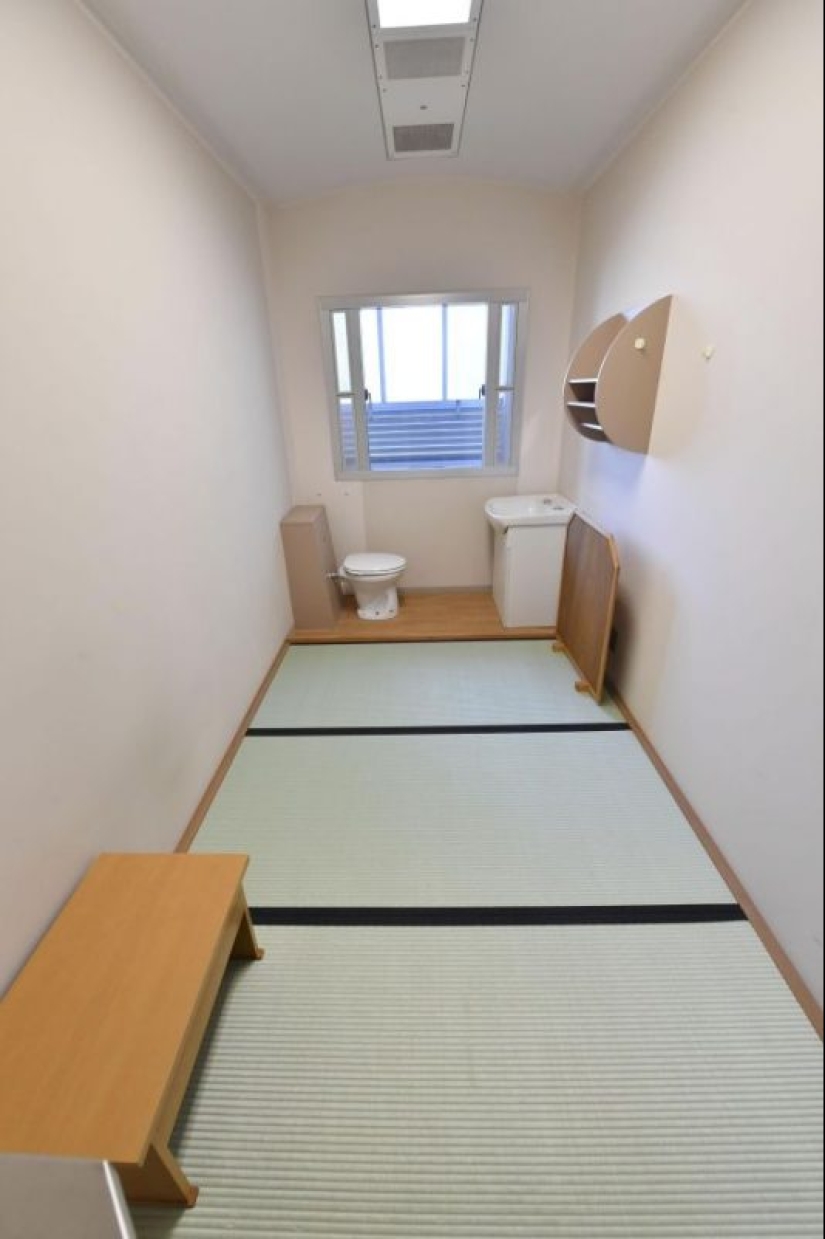
Strict minimalism in the cells
The cells are not packed to capacity and, often, there is one prisoner in a 2 or 4-bed room. But even this fact does not make his life more comfortable — tiny rooms have a minimum of amenities, and most often you have to sleep on a thin mattress on the floor. Blankets are not put by the Japanese "convict" for security reasons — you never know what a desperate nurse does under the blanket at night. It is supposed to sleep on your back with your arms outstretched to the sides, and if a person accidentally changes his position in a dream, then he may well be rudely awakened by a kick in the ribs and forced to correct himself.
Those sentenced to execution are monitored around the clock, oddly enough, so that they themselves do not take their own lives
But the most unbearable life is for those sentenced to death. Suicide bombers are not involved in work and in general practically do not leave their solitary cells. The conditions of their detention are more humane — there is some furniture in the cells and there is a blanket. After the sentencing, the execution can be expected for years, so the sentenced person spends part of his life in terrible anticipation. There are cases when a suicide bomber has been waiting for execution for more than 30 years and it was still carried out. Since 1945, only 6 executions have been abolished in this country.
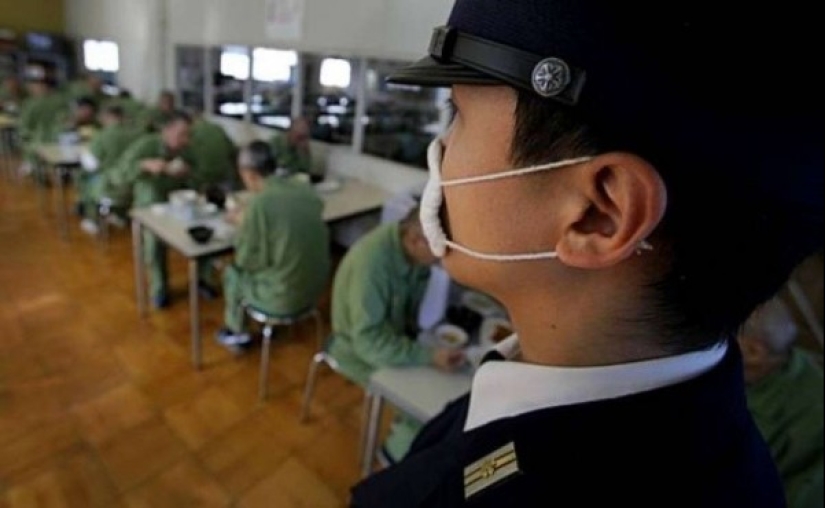
Imagine what it's like to constantly flinch from turning the key in the lock and wonder if a change of underwear will be brought or the executioner will invite you to the gallows. The Japanese explain such a long wait for death simply — they want to avoid judicial errors and wait for new evidence or suspects to appear. But waiting for death is worse than death itself, so many suicide bombers are trying to take their own lives, unable to withstand years of tension.Contact visits are not practiced in Japanese prisons. All a prisoner can count on is half an hour of conversation through the glass under the supervision of a guard and video cameras. The appointment is made by the prison administration at its discretion and the circle of people who can see the convict includes only the closest relatives and a lawyer.
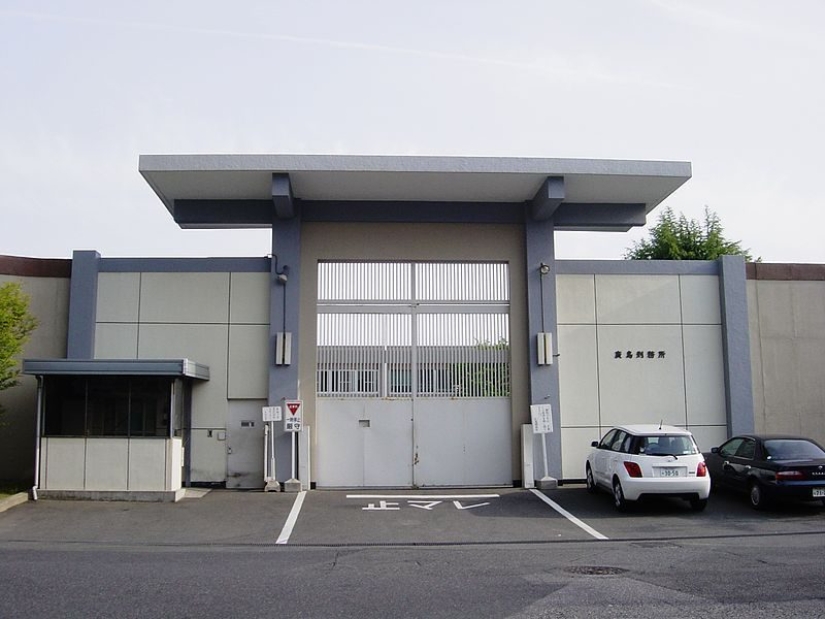
Now do you understand why the Japanese are afraid to faint to go to prison and can't even stand talking about this place? They are well aware that even the smallest term will change their lives forever and that the sentence may turn out to be a one-way ticket. Thanks to this, Japan has the lowest percentage of prisoners per capita in the world and generally one of the most modest crime rates on the planet.
Keywords: Crimes | Term | Prison | Japan
Post News ArticleRecent articles

We present you a selection of amazing beaches — but today these are not standard holiday destinations, but really unusual places. ...

Aerial photographer cronista johnny Miller demonstrate dramatically the gap between rich and poor in cities of South Africa, Mexico ...
Related articles

Pillowcases thieves, burglars shops and petty crooks juvenile offenders, which a hundred years ago in the UK flogged with rods, ...

March 21, 1963 was closed to the famous American prison for dangerous criminals Alcatraz, also known as "the Rock". Located on the ...

"Strawberry" is not always sweet. The porn industry is an environment where big money is spinning and illegal business is ...

On April 22, 1923, Bettie Page was born in Nashville, who became a sex symbol throughout the country in the middle of the century. ...